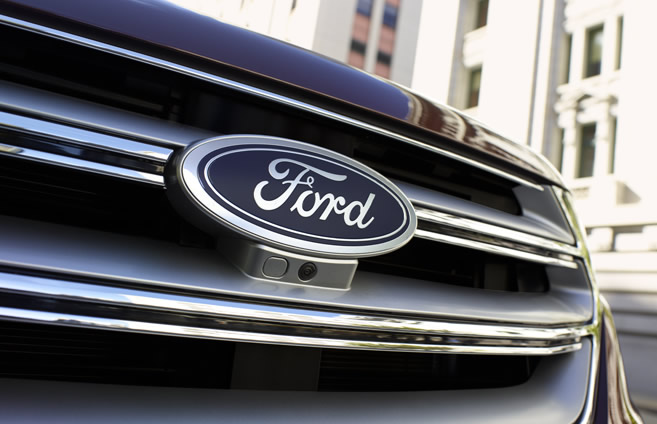Ford, Stellantis, General Motors: car manufacturers no longer tire with rubber?

Is rubber scarcity a new headache for automakers? Bloomberg's insight
Carmakers struggling with pandemic-induced plant closures and a global chip shortage are now facing another supply chain problem: dwindling rubber supplies.
Blocked shipping lines are disrupting the movement of natural rubber, a key material used in tires and components under the hood. With global supply already running out of stock as a result of China and a devastating leaf disease, rubber prices are on the rise and some U.S. auto suppliers are rushing to secure shipments before the market is squeezed further. – writes Bloomberg.
While companies in nearly every market are grappling with shortages, perhaps no industry has been hit harder than the auto industry. Many plants have been stopped by a semiconductor crisis that is costing tens of billions of dollars in lost revenue, while materials, from seat foam to metal to plastic resin, are becoming harder to find. The industry, which has long relied on just-in-time manufacturing to cut costs, is finding it has limited flexibility to address the supply chain disturbances caused by the pandemic.
Rubber shortages threaten to further disrupt vehicle production just as demand rebounds and the Biden administration waters the US economy with $ 1.9 trillion in stimulus spending. And rubber problems could prove particularly thorny because trees take seven years to mature, making supply unlikely to rebound quickly.
"It's like paper towels at the start of the Covid crisis," said Steve Wybo, who heads the auto practice group at consulting firm Conway MacKenzie outside Detroit. "If you can get your hands on some plastic or rubber, you will order more than you need because you don't know when you will be able to get it."
Ford Motor Co. and Stellantis NV, formerly known as Fiat Chrysler, say they are monitoring the tire situation but have not yet felt an impact. General Motors Co., likewise, says it is not concerned about its rubber supply. France's Michelin, one of the world's largest tire manufacturers , is bypassing port congestion by using air freight direct from Asia.
But for suppliers who depend on US distribution, rubber is already a concern.
Natural rubber is produced from the white sap of trees found in the hot, humid climates of countries like Thailand and Vietnam. While petroleum-based synthetic rubber is preferred for some applications, the natural version has properties that are critical for products such as gloves and packaging tapes – both of which saw increased demand during the pandemic. And as a critical component in the tires and anti-vibration parts under the hood, it is more closely associated with the automotive industry than any other.
The rubber industry is dominated by smallholders, which makes it difficult for producers to adapt quickly when demand changes, prices fluctuate or problems arise in the supply chain. It's not the only commodity market that doesn't have an easy solution: There could be a copper deficit of 10 million tons by 2030 if no new mines are built, according to commodity trader Trafigura Group.
Thailand, the world's largest rubber producer and exporter, struggled with persistently low prices for several years before the pandemic, leading farmers to cut more trees to compensate for the lower income – and giving them little incentive to plant more. Supply tightened on demand for rubber gloves during the pandemic, and it was also depleted by natural elements, including drought, floods and a leaf disease in the world's major producing countries.
Supply problems didn't start affecting the United States until the second half of last year, when China, the world's largest auto market and leading consumer of natural rubber, took advantage of low prices and a recovery in its market. economy to make substantial purchases, said Whitney Luckett, owner of Simko North America, a natural rubber distributor based in Colorado Springs, Colorado – one of only three in the United States.
The U.S. rubber supply became so tight late last year that some distributors ran out of stock, said Mike Jones, director of global sourcing at Intertape Polymer Group, which produces tape for e-commerce companies. commerce.
This is seen in the price of rubber futures. Natural rubber rose to around $ 2 per kilogram at the end of February, a four-year high, before a recent decline, Bloomberg data shows. Robert Meyer, the former CEO of rubber giant Halcyon Agri Corp. Ltd., sees prices soar as high as $ 5 over the next five years.
“The supply problems we're seeing now are structural,” said Meyer, now CEO of the venture firm Angsana Investments Private Ltd. in Singapore. "They won't change anytime soon."
The situation is exposing the dangers of just-in-time manufacturing practices that have been the gospel of the auto industry for decades, according to Tor Hough, founder of research firm Elm Analytics. By keeping inventory lean to control costs, companies are vulnerable during times of increased supply chain volatility. The semiconductor shortage – exacerbated by automakers slashing orders during the Covid-19 arrests – could cost $ 61 billion in lost revenue this year, according to consultancy AlixPartners.
China's recent rubber purchases have highlighted an additional vulnerability for the United States, which has no domestic inventory to serve as a safety net for domestic companies, noted Dan Finkenstadt, a professor at Naval Graduate School of Defense Management in Monterey. California.
"People have believed for a long time that market demand and capitalism would always be there," he said. "That's not what happens in a natural emergency where everyone shoots at the same time."
(Extract from the foreign press review by Epr Comunicazione)
This is a machine translation from Italian language of a post published on Start Magazine at the URL https://www.startmag.it/smartcity/ford-stellantis-general-motors-le-case-auto-non-sgommano-piu-con-la-gomma/ on Sun, 18 Apr 2021 05:41:41 +0000.
